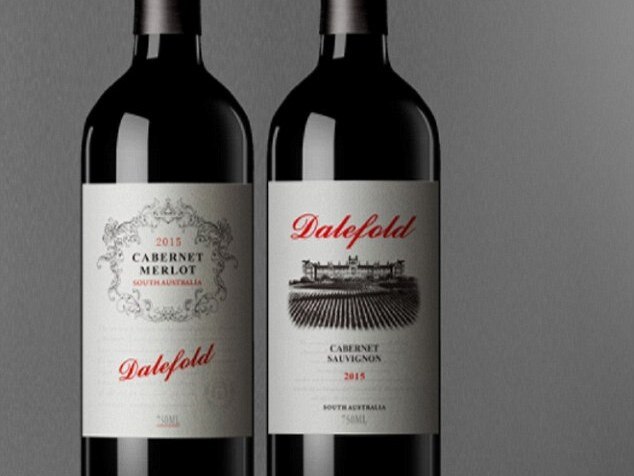
While armchair trade experts love to pontificate on the need for diversification away from Australia’s reliance on China as a key market, TWE has been at the coal face, having spent the past few months scrambling to adjust to the fallout from a bitter political dispute that is out of its hands.
Six months ago, TWE was riding high on enthusiasm for its products from the growing middle class in China, which has been shifting its consumption from cheap beer to mid-priced wine.
The company’s biggest single worry seemed to be how fast the Chinese economy was recovering from its COVID-19-induced shutdown.
At a time when Australia was the largest single foreign supplier of wine to China, selling some $1.3bn of wine to the world’s second-largest market, TWE was getting two-thirds of its Asian earnings and a staggering 30 per cent of its total group earnings, or some $160m pre-tax, from China.
But that all changed late last year as China sought to retaliate against what it saw as increasing antagonism from Australia and the Morrison government, including a call for an inquiry into the origins of the COVID-19 pandemic.
Hopefully the government is pleased with the recent visit by World Health Organisation officials to China to carry out an inquiry, given the high cost of the comments on Australian exports.
Hit by tariffs of more than 200 per cent on Australian wine exports to China, Australian wine sales to the Asian nation have all but stopped.
Until months ago the biggest single individual suppliers of foreign wine to China, TWE has been moving as fast as it can to diversify its markets for Australian wine to other parts of Asia and to source wine from Europe and the US to meet demand from its existing customers in China.
TWE’s half-yearly results for the six months to the end of December, released on Wednesday, have already been hit by the closure of its China market to wines from Australia, with first-half net profit down 24 per cent to $175.3m.
The figures show sales to China were down by 22 per cent compared with the last six months of 2019, while earnings on China sales were down 37 per cent to $78.7m.
The company’s full-year results will be hit much harder given that the China market didn’t effectively close off until the tariffs were imposed from November 28.
While the news of an anti-dumping investigation into Australian wine exports to China by China’s Ministry of Commerce was announced in August, TWE’s half-year results only really reflect the impact of one month of the higher tariffs that have now effectively shut down the market for Australian wines in China.
Analysts spent some time on Wednesday’s earnings call trying to pin down exactly how much of an effect the closure of the China market would have on the company’s full-year earnings.
The net impact in the short to medium term will depend on its success in diversifying sales to other Asian markets.
TWE chief executive Tim Ford noted that the company was stepping up its focus on other Asia markets such as Japan, South Korea, Taiwan, Vietnam and Thailand for its high-end Penfolds wines.
Hong Kong was another market that could benefit from increased attention in Asia, he said.
Taking a long-term view of the market, TWE executives on Wednesday staunchly declared they were not giving up on China.

In a country where Penfolds is so popular one of its main challenges is fending off competition from fakes and counterfeit brands, TWE is being accused — like other Australian winemakers — of dumping its product (that is, selling it too cheaply).
The anti-dumping investigation by China’s Ministry of Commerce, which is still going on, will be with the company for some years, as will China’s moves against other Australian exports including barley, beef and coal.
But TWE’s Shanghai-based Asian chief, Tom King, who is overseeing its push into new markets in Asia, said on Wednesday releasing the company’s half-year results: “We haven’t given up on China.”
The strength of the Penfolds brand has resulted in the company launching a new range of Penfolds wine made in the US, where the company has major operations and has plans to focus on up-market brands.
As well as expanding its up-market products in the US, it provides it with a key product to keep supplying its Chinese customers who love the Penfolds brand.
Interestingly, King not only mentioned the market potential in China for TWE’s wines from all over the world, but the talent the company has built up in operations in China, which is still the world’s fastest-growing wine market.
“They will play a key role in our future team going forward,” he said.
TWE was criticised by some wine aficionados for its decision a few years ago to mix its red wine with Chinese rice wine, or baijiu, to sell a unique new product into the China market called Lot 518.
While it is not a massive seller, this product is not affected by the tariffs on Australian wine in the China market.
TWE’s American operations, which have had their ups and downs in recent times, will come into their own with the company now pushing to sell more of its US product into China where it has spent years developing market channels and learning some hard lessons about doing business there.
TWE’s moves to reposition itself to cope with the fallout from the China tariffs will be watched closely by its shareholders and others for the lessons on coping with the business fallout from political tensions.
Its global footprint is making it a lot easier than the many other Australian wine makers that have focused much of their efforts in selling into the China market and are now suffering.
Hopefully TWE’s determination to take a longer-term view of the potential of the China market will pay off if, or maybe when, the political differences between the two countries die down.







As Australia’s ties continue to deteriorate, Treasury Wine Estates is proving to be a textbook case on dealing with China in 2021.